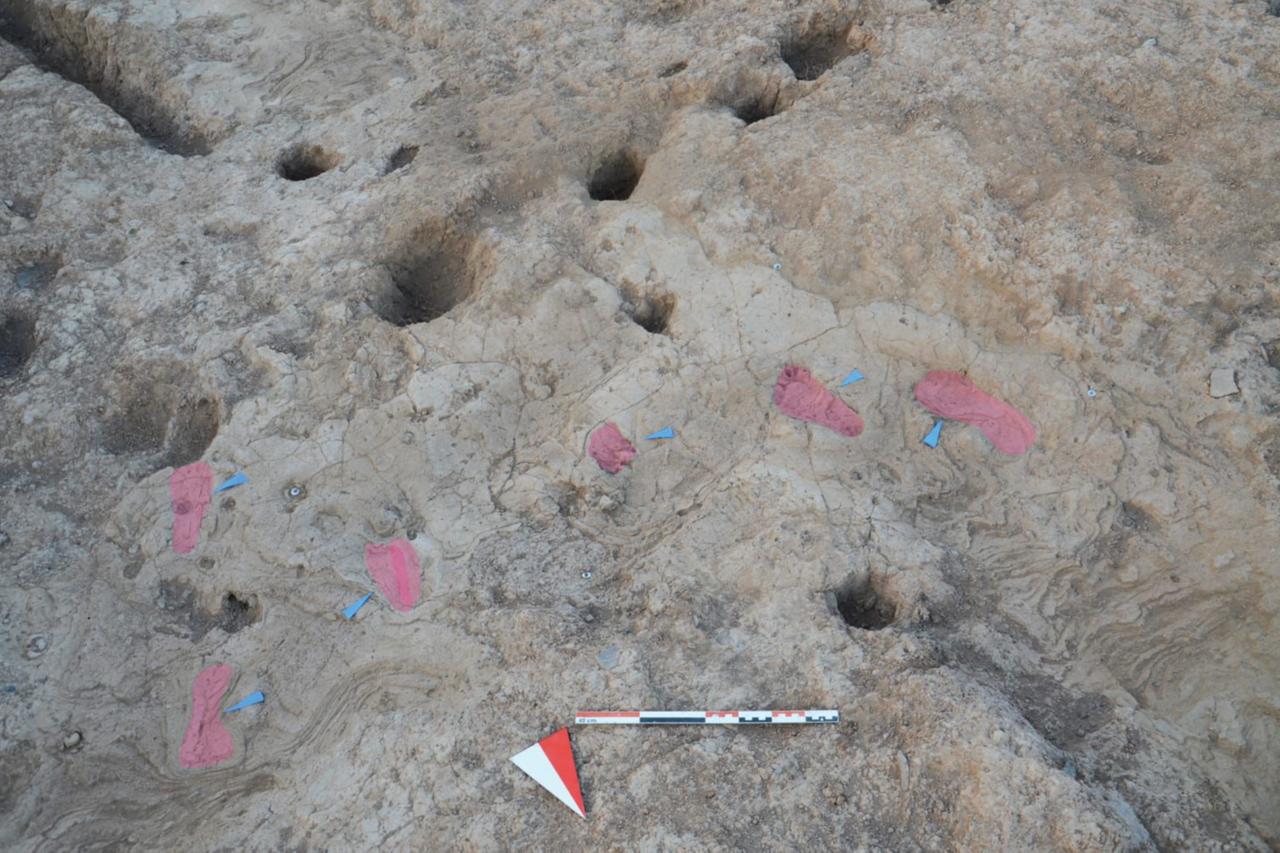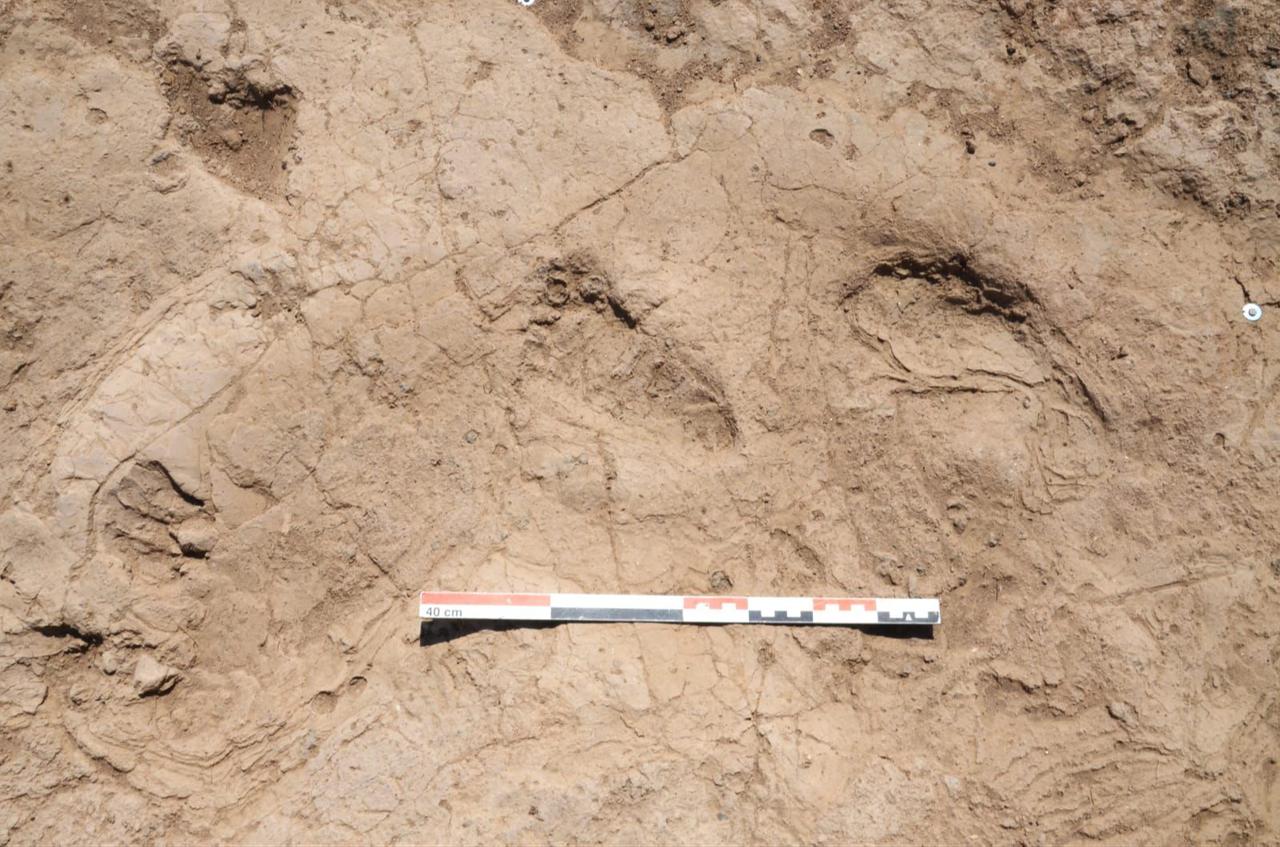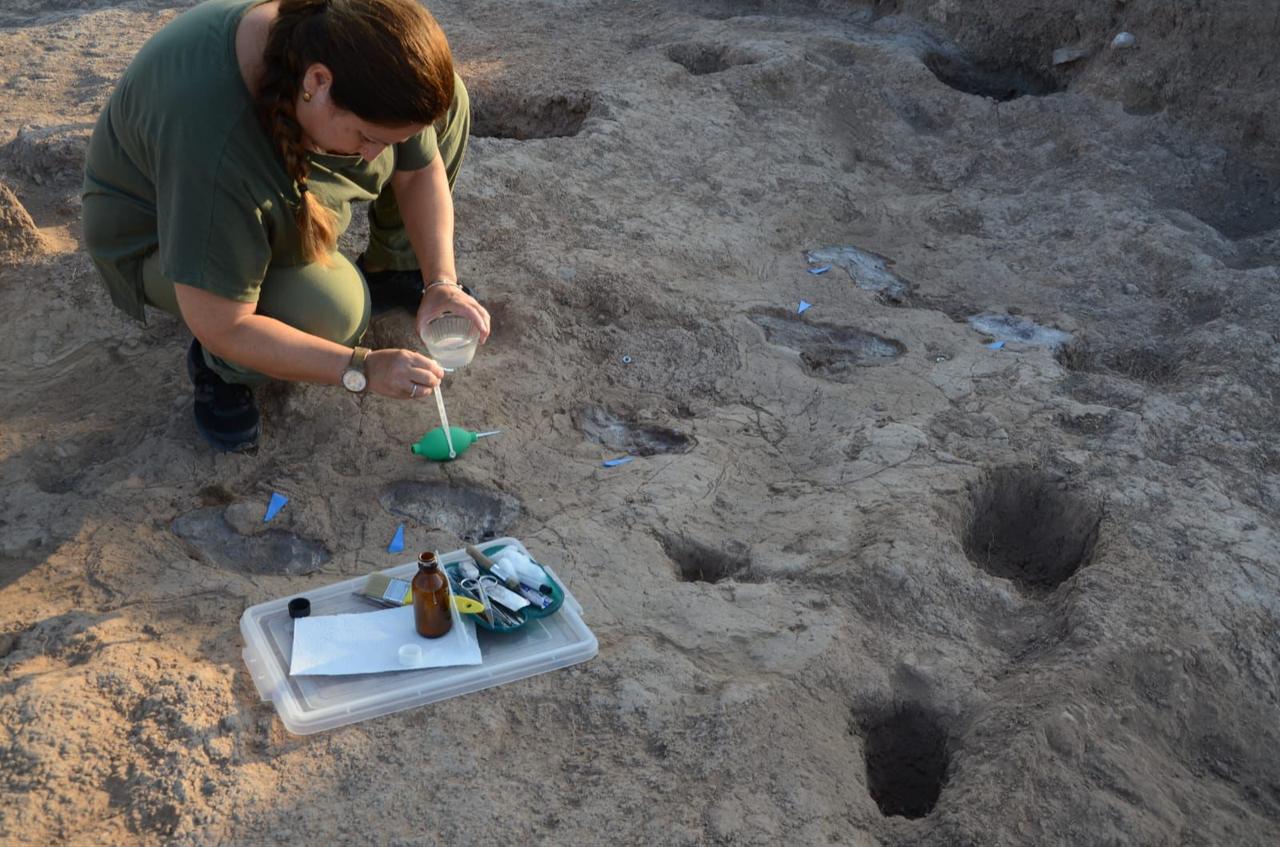
Türkiye’s Culture and Tourism Minister Mehmet Nuri Ersoy has announced a remarkable discovery at Tell Kurdu Hoyuk, an archaeological mound located in Karahuyuk, a village in the Reyhanli district of Hatay.
Excavations revealed five human footprints dating back to around 5,200 B.C., a period associated with the Ubaid culture and the Early Amuq E phase of the Middle Chalcolithic Age.
The minister described the find as an exceptional window into the past, noting that the traces were left by people walking across rain-soaked mud thousands of years ago.
He emphasized that such a discovery is extremely rare in Anatolian archaeology, providing direct evidence of human presence rather than tools, pottery, or architecture alone.

The footprints were unearthed on Aug. 21, 2025, during excavations in trench 8564.
Archaeologists determined that they belonged to individuals who had walked across a wet and muddy layer that had later hardened and been preserved under subsequent deposits.
According to the ministry’s statement, discoveries of this kind are considered highly uncommon in the archaeological record of Anatolia.
They are seen as offering unique testimony to the daily lives of prehistoric communities, adding a human dimension to our understanding of social and cultural practices in the region nearly seven millennia ago.

In his social media post announcing the find, Minister Ersoy stated: “Anatolia’s footsteps from 7,000 years ago have reappeared in the light of day.
At Tell Kurdu Hoyuk in Hatay’s Reyhanli district, we have uncovered five human footprints dating back to 5,200 BCE, within layers associated with the Ubaid period.
These prints, left on mud soaked by rain, offer us a unique testimony reaching across millennia.
With our Heritage for the Future Project, we remain determined to achieve in four years what was once done in sixty, carrying the traces of the past into the future while protecting and promoting Türkiye’s historical heritage.”